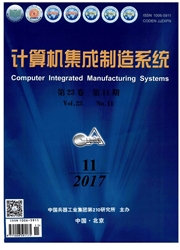

 中文摘要:
中文摘要:
为了研究奖惩机制对成员企业决策产生的影响,以及如何协调奖惩机制下的闭环供应链,构建了需求不确定下由单一制造商、单一零售商和第三方回收商组成的具奖惩机制的闭环供应链博弈模型。研究表明,无论是集中决策还是分散决策,奖惩机制下回收率、订货量、零售商期望利润和第三方回收商期望利润均提高,并随奖惩力度的增大而增大;零售价均降低,且随奖惩力度的增大而减小,但这些决策变量和利润均与最低回收率的设定无关。制造商的利润同时受到奖惩力度和最低回收率的影响。渠道效率随奖惩力度和最低回收率的增大而降低。此外,研究发现分散化决策下的系统利润要低于集中定价决策下的系统利润,由此提出了改进的收入—费用共享契约和两部收费制契约来协调奖惩机制下的闭环供应链,但两部收费制契约的协调性能优于收入—费用共享契约。
 英文摘要:
英文摘要:
To study the effect of premium and penalty mechanism on decision of member enterprises, and to coordinate the Closed-Loop Supply Chain (CLSC) under premium and penalty mechanism, a CLSC game model which composed of a single manufacturer, a single retailer and a single third-party collector with premium and penalty mechanism under uncertain demand was constructed. The study results showed that the return rate, order quality, retailer and third-party collector expected profits were all increased and the retail prices were all decreased under premium and penalty mechanism for centralized and for decentralized decision-making, but all these decision variables and profits were not relevant with recovery setting. Manufacturer's profit was affected on the lowest level of return rate and the extent of premium and penalty. Channel efficiency was decreased with the increasing of the lowest return rate and the extent of premium and penalty. In addition, the system profit in decentralized decision-making was less than that in centralized decision-making, thus a modified two-part pricing contract and income-cost sharing contract were presented to coordinate the closed-loop chain, but the coordination performance of two-part pricing contract was better than income-cost sharing contract.
 同期刊论文项目
同期刊论文项目
 同项目期刊论文
同项目期刊论文
 期刊信息
期刊信息
